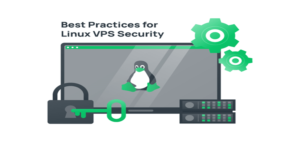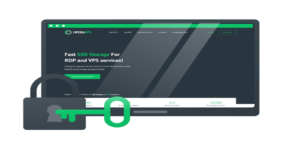Linux VPS is inherently the most secure hosting solution compared to other hosting options like Windows due to its architecture.
However, this does not mean Linux VPS is immune to security vulnerabilities or threats. Therefore, implementing various security measures such as proper configuration, secure remote access, secure tools implementation, etc, are essential for minimizing security risks and protecting your Linux VPS from unauthorized access and data breaches.
For a deeper dive into these practices, read this article till the end.
Why Harden Your Linux VPS?
Security is a sensitive and important issue that requires attention; default configurations, unnecessary and outdated services, weaknesses in settings, and access controls make the Linux system vulnerable.
So, by hardening your Linux VPS, you significantly reduce the risk of attacks, data breaches, chances of crashes or malfunctions, and attack surface, and benefit from a more efficient and stable system.
Importance of securing your VPS
Nowadays, with the advancement of technology, every system is vulnerable to security threats. For this reason, securing your VPS is crucial for safeguarding essential data, minimizing financial losses, and ensuring business continuity. Here are the reasons for the importance of securing VPS:
- Protecting sensitive data, including customer information, business data, and financial records, against unauthorized access, data breaches, and theft.
- Maintaining business reputation and customer trust by avoiding security breaches.
- Preventing downtime and financial losses and ensuring uninterrupted service availability.
- Mitigating Financial Losses by preventing financial losses due to theft of funds, ransom payments, legal fees, and other remediation-related costs.
- Preventing unauthorized access, data theft, data manipulation, and unauthorized use of resources.
- Ensuring business continuity without disrupting business operations via security incidents.
Common security threats
There are various security threats affect today’s digital landscape, such as:
- Malicious malware designed to damage and infiltrate the system, including Trojans, ransomware, viruses, and spyware
- Brute Force Attacks that are attempts to gain unauthorized access to systems, accounts, or sensitive data
- Phishing is an attempt to trick users into gaining their sensitive information like passwords, credit card numbers, or personal data
- DDoS (Distributed Denial of Service) Attacks are attempts to unavailability of services for authorized users
- A sniffing attack is an attempt to gain unauthorized access to sensitive data from the network
- SQL Injection is an attempt to manipulate databases and gain unauthorized access to data by exploiting code in a web app
- Cross-site scripting (XSS) injection is an attempt to steal session cookies and redirect users to malicious websites
- Identity theft
- Insider Threats by negligent individuals with authorized access
- Data Breaches via unauthorized accessing to sensitive data
- DNS Spoofing to redirect domain name resolution requests to malicious servers
Is Linux VPS secure?
Yes, Linux VPS is considered a safer hosting solution compared to other solutions due to its open-source nature, strong system and file permissions, and active community support for security. However, it’s better to take extra precautions to enhance its security.
Popular security tools for Linux VPS
- Fail2ban for monitoring server logs for detecting suspicious activity
- Firewalls
- SSHGuard for monitoring SSH, FTP, and other services for identifying suspicious activity and malicious IP addresses
- Secure VPN solutions like OpenVPN for encrypting traffic
- OSSEC (host-based intrusion detection system) for log analysis
- Snort (network intrusion detection system) for analyzing network traffic in real-time
- Open-source antivirus software like ClamAV to scan files and systems for malware and viruses
10 best Linux VPS security tips

The best practices for hardening the Linux VPS are as follows:
1. Disable Root Login:
Since “root” is a common username for every Linux VPS user, it is an advantage for hackers to figure out the password and other details through brute force attacks.
For this reason, use a regular user account with sudo privileges for administrative tasks instead of a root login to add an extra layer of security against brute-force attacks.
2. Keep the System Updated:
Regularly updating operating systems, software packages, and applications to the latest version improves security by getting security updates and patches.
In addition, setting CMS (WordPress, Joomla, and Drupal ) to update automatically helps to patch potential vulnerabilities.
3. SSH Security:
Changing the default SSH port (port 22) is one of the security measures to protect your Linux VPS and essential data against brute-force attacks and unauthorized remote SSH access by hackers and malicious scripts.
Also, to harden SSH, using strong SSH keys (public and secret) to log in to an SSH account and limiting access attempts has an important role.
4. Use strong passwords:
Set complex passwords using numbers and unique characters to make figuring out the password difficult.
Furthermore, avoid using the same password for multiple accounts and regularly (at least every three months) change your password.
5. Enable Firewall:
Enable popular firewalls such as Firewalld or iptable to filter incoming and outgoing traffic. Setting up a firewall is necessary to strengthen your VPS security because you can configure it to allow only necessary ports and trusted IPs and protect your Linux VPS against DDOS threats.
6. Prevent anonymous FTP transfers:
Prevent anonymous FTP transfers on your Linux VPS by changing FTP settings or using cPanel and Plesk. This protects your Linux VPS from unwanted manipulation or uploading/ downloading of anything on your server.
7. Regular Backups:
Taking regular backups of your data and saving them in secure, off-site locations are common security measures; you should not forget them. This action ensures data recovery in case of failure.
8. Monitor System Activity:
Use popular and robust monitoring tools such as IDS/IPS tools (like fail2ban or OSSEC), Nagios, Zabbix, or Prometheus, along with centralized logging solutions to monitor system logs, process activity, and network traffic for signs of intrusion and suspicious activities.
9. Implement Least Privilege Principle:
Grant users a minimum level of access to applications and files and use AppArmor or SELinux to enforce access control policies to protect your system from unauthorized access.
Implement Two-Factor Authentication (2FA):
Add Two-Factor Authentication (2FA) for login to enhance authentication security.
Looking for affordable RDP? Try Cheap RDP now!
Finding secure Linux VPS
Security should always be a top priority when choosing the appropriate server for your goal. Therefore, to benefit from a secure Linux server, you should look for a hosting provider that focuses on implementing security measures in addition to offering quality services.
OperaVPS is one of the popular Linux VPS providers that offers the most value for your money. OperaVPS offers high-performance, fast, scalable Linux servers with 99.9% uptime at an affordable price that are hosted in more than 20 locations around the globe.
Furthermore, OperaVPS, to ensure the safety of its Linux VPS, provides security features like robust firewalls, DDOS protection, and regular backups.
Also, OperaVPS offers 24/7 responsive technical monitoring and support to address security incidents.
Click through the following web page, OperaVPS, to enhance the security posture of your Linux VPS and minimize the risk of security breaches and data loss. OperaVPS is the best option for experiencing efficient and secure Linux VPS.
Conclusion
Although Linux VPS is inherently the safest hosting solution, no technology can be 100% secure against security threats. Therefore, you should equip yourself with security knowledge and techniques to protect your server against security breaches and the risk of data loss.


